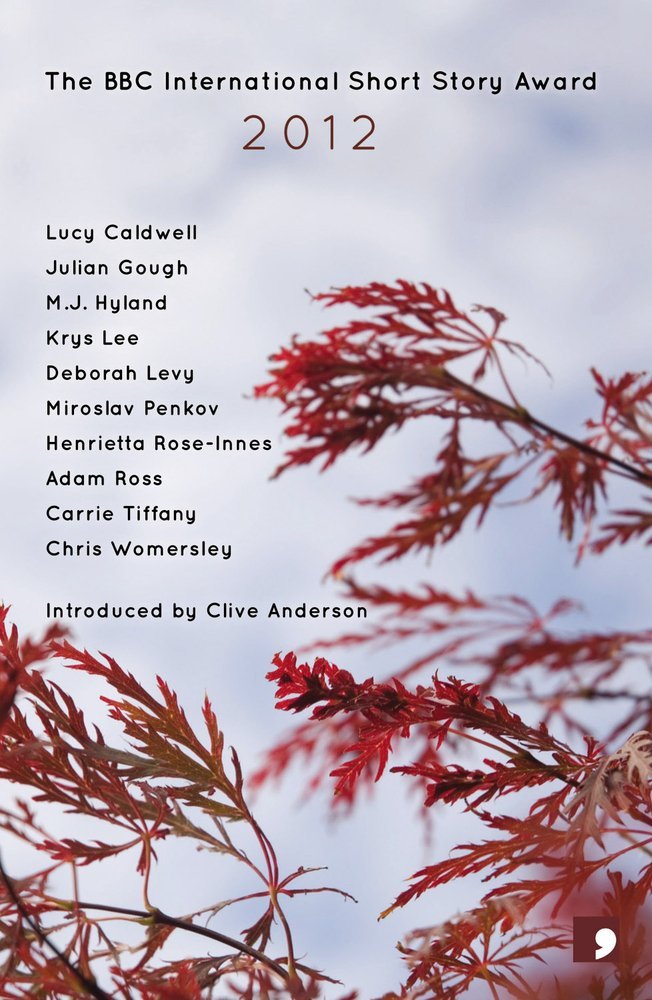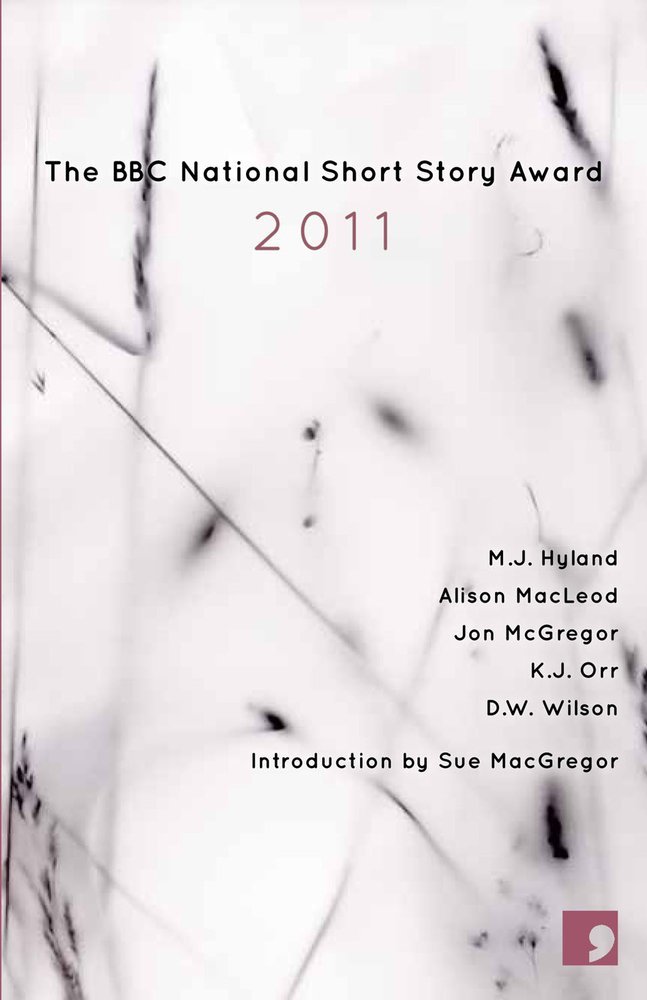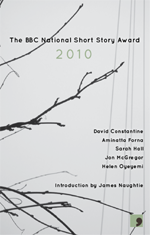
photo by Agnes Scholiers
by Kirsty Walters
Recently, I started feeling restless, desperate for something to happen; I was almost tempted to vanish and start anew somewhere exotic. As I often do when this feeling takes over, I tried to distract myself by escaping into a book. But what I found in The BBC International Short Story Award 2012 anthology were ten stories that mirrored my desires. Each one has, at its core, a theme of absence or disappearance. These are stories of missing people, death, and the ability to dispose of whatever we want, whenever we want…
In ‘The iHole’ by Julian Gough we are introduced to a new piece of cutting-edge technology: a black hole through which almost anything can be discarded. This invention becomes a craze, as any new technology does, with upgrades and add-ons constantly being created. Soon though, ethical questions begin to arise as the number of people reported missing increases. Yet these disappearances, disturbingly, are deemed to be beyond the jurisdiction of the court; after all, they happened ‘outside of this universe’.
All the while, we understand that there is something strange and detached about Thierry, the inventor of this controversial new fad. From the start, Gough tells us that Thierry has ‘…no enemies, no friends, and no life that anyone knew of’. And yet rumours fly around about him, and about his mother:
[She] was schizophrenic. No, she’d lost her memory in a carcrash. She collected, ah, butterflies? Barbies? Beanie Babies. She’d been seen wandering around a parking lot, naked…’
Using these rumours, Gough sets in motion questions in the reader’s mind, questions about the psychological condition of both the inventor and his mother. Yet, once Thierry’s black-hole sales pitch is over, he doesn’t say another word. We can intuit his mood, but we are not let into his thoughts.
Back at home, he didn’t seem to know what to do. The house was just a shell with a futon lying on the floor of one room. Using his Swiss army knife, Thierry ripped up the futon and fed it into the black hole. It took all night.
 Gough’s use of subtle gaps in the narrative allow the reader to read between the lines, a technique that keeps us alert and involved throughout the story. Only at the very end do we finally learn Thierry’s disturbing secret.
Gough’s use of subtle gaps in the narrative allow the reader to read between the lines, a technique that keeps us alert and involved throughout the story. Only at the very end do we finally learn Thierry’s disturbing secret.
Chris Womersley’s ‘A Lovely and Terrible Thing’ is the story of a man who searches the world for strange and wonderful peculiarities, as part of his job – reporting back to Ripley’s ‘Believe it or Not’. Meanwhile, at home he has a stressed wife who has been left caring for their brain damaged daughter, about whom he feels a strange sense of shame.
Womersley evokes a strong sense of his character’s grief and loneliness as he drives from place to place, searching for something worth reporting. His world ‘feels empty of possibility’. We learn about the daughter. He hints that it is his family situation and the misfortune of the girl’s accident that make him feel cut off from the ‘majesty’ of the world.
In spite of the rare nature of his work, the narrator says, ‘Somewhere along the way the job lost its magic, but perhaps that was just me’. He feels trapped by his responsibilities at home.  He ‘trudges’ from place to place and ‘curses’ his decisions. We know that this man is lost both on the road and at home.
He ‘trudges’ from place to place and ‘curses’ his decisions. We know that this man is lost both on the road and at home.
When he breaks down on his way to verify a claim about a parrot that can count to 150, he meets a farmer who claims that his daughter can also do something remarkable. Our protagonist goes to the farmer’s home and shares their family meal. Afterwards, the farmer leads him to a shed at the bottom of the garden where the remarkable daughter is kept, chained to a bed to prevent her from floating around the room. Cleverly, Womersley uses this girl’s situation to mirror the narrator’s entrapment; she is allowed to float around the room for small amounts of time but, eventually, she is always tied back to the bed. This is a sad tale, but one that offers a strangely promising and near euphoric ending.
 Among the fantastic tales of this collection, there are also stories that seem as though they come from another world, while being firmly rooted in real life. Take, for instance, the story ‘East of the West’, by Miroslav Penkov. It tells of two villages divided by a river, both of which used to belong to Bulgaria but have now been split – the land to the west of the river now belongs to Serbia, whilst the land to the east remains Bulgarian territory. The villagers are not allowed to cross the river, which is heavily guarded by men with guns day and night. Every five years, though, special permission is granted for the two villages to come together for a reunion. It is during this party, called the ‘sbor’, that the protagonist, Nose, meets his cousin Vera. Vera lives on the west side of the river – the Serbian side – and, having lost the right to call herself a Bulgarian, she is struggling to know who she is.
Among the fantastic tales of this collection, there are also stories that seem as though they come from another world, while being firmly rooted in real life. Take, for instance, the story ‘East of the West’, by Miroslav Penkov. It tells of two villages divided by a river, both of which used to belong to Bulgaria but have now been split – the land to the west of the river now belongs to Serbia, whilst the land to the east remains Bulgarian territory. The villagers are not allowed to cross the river, which is heavily guarded by men with guns day and night. Every five years, though, special permission is granted for the two villages to come together for a reunion. It is during this party, called the ‘sbor’, that the protagonist, Nose, meets his cousin Vera. Vera lives on the west side of the river – the Serbian side – and, having lost the right to call herself a Bulgarian, she is struggling to know who she is.
“Our history teacher,” she said, “told us we were all Serbs. A hundred percent.”
“Well you talk funny,” I said. “Serbianish.”
“So you think I’m a Serb?”
“Where do you live?” I asked her.
“You know where.”
“But do you live in Serbia or in Bulgaria?”
Her eyes darkened and she held them shut for a long time. I knew she was sad. And I liked it. She had nice shoes, and jeans, and could listen to bands from the West, but I owned something that had been taken away from her forever.
“The only Bulgarian here is me,” I told her.
Nose’s sister Elitsa, on the other hand, has a longing to disappear to the west, to be with a Serbian boy with whom she has fallen in love. But her love for the boy across the river leads her to take an impulsive and dangerous late night swim, during which she and her lover are shot and killed.
When Vera moves away, she writes to Nose regularly, begging him to join her. But, although he wants to go to her, he keeps putting it off. Eventually Nose does make it to Beograd, but the result is far from what he expected… ‘East of the West’ is a story full of longing and dreams and our secret wishes to disappear.
Many of the stories in The BBC International Short Story Award 2012 are alive with a sense of mystery that kept me reading right till the end. Overall, I enjoyed the collection, even though the reoccurring themes of absence and the dreams of disappearing have done little to settle my itchy feet. Much like Penkov’s Vera and Nose, I’m left wondering about the hundreds of others possibilities there might be in the world.

